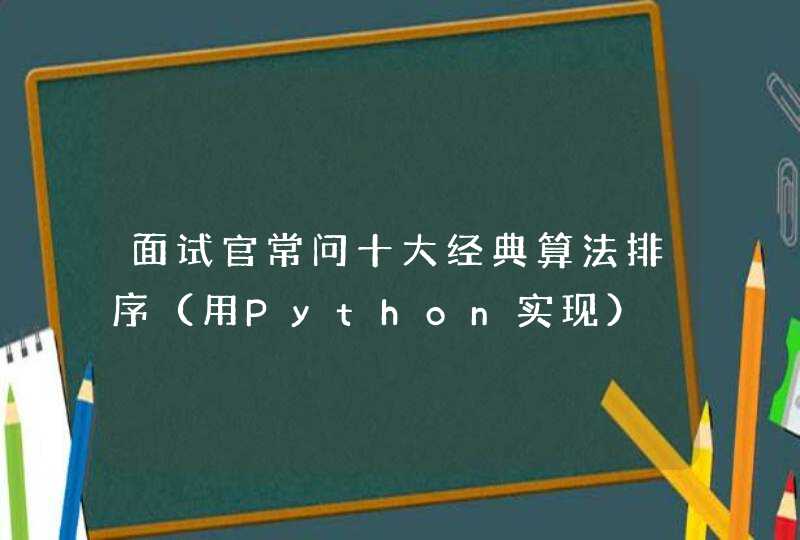
1:预定义
在home目录,也可以其他任意目录,写一个文件,例如caleng_module.def
内容是你希望定义的函数名以及参数:
int a(int x,int y)
string b(string str,int n)
2:到php源码目录的ext目录
#cd /usr/local/php-5.4.0/ext/
执行命令,生成对应扩展目录
#./ext_skel --extname=caleng_module --proto=/home/hm/caleng_module.def
3:修改config.m4
去掉dnl的注释
PHP_ARG_ENABLE(caleng_module, whether to enable caleng_module support,
Make sure that the comment is aligned:
[ --enable-caleng_module Enable caleng_module support])
4:修改caleng_module.c
代码如下:
/* {{{ proto int a(int x, int y)
*/
PHP_FUNCTION(a)
{
int argc = ZEND_NUM_ARGS()
int x
int y
int z
if (zend_parse_parameters(argc TSRMLS_CC, "ll", &x, &y) == FAILURE)
return
z=x+y
RETURN_LONG(z)
}
/* }}} */
/* {{{ proto string b(string str, int n)
*/
PHP_FUNCTION(b)
{
char *str = NULL
int argc = ZEND_NUM_ARGS()
int str_len
long n
char *result
char *ptr
int result_length
if (zend_parse_parameters(argc TSRMLS_CC, "sl", &str, &str_len, &n) == FAILURE)
return
result_length = str_len * n
result = (char *) emalloc(result_length + 1)
ptr = result
while (n--) {
memcpy(ptr, str, str_len)
ptr += str_len
}
*ptr = '\0'
RETURN_STRINGL(result, result_length, 0)
}
/* }}} */
5:生成扩展库
#cd ./caleng_module
#/usr/local/php/bin/phpize
#./configure --with-php-config=/usr/local/php/bin/php-config
#make
#make install
6:到php的对应extensions目录
如上图所示
#cd /usr/local/php/lib/php/extensions/no-debug-non-zts-20100525/
改目录下有生成的caleng_module.so文件
7:修改php.ini
php.ini如果找不到可以从phpinfo()打出的信息看到
#cd /usr/local/php/lib/
php.ini增加扩展信息
extension=caleng_module.so
8:重启Apache
# /usr/local/apache2/bin/apachectl restart
9:检查加载
/usr/local/php/bin/php -m
10:PHP调用
代码如下:
echo a(1,2)
输出 3 就说明成功了!
下面是原文
Linux下用C开发PHP扩展
一、首先下载PHP源码包,假设源码包目录为:/software/php-5.2.13
一、首先下载PHP源码包,假设源码包目录为:/software/php-5.2.13
#>cd /software/php-5.2.13/ext
二、假设我们要开发一个名为caleng_module的扩展,该扩展包含两个函数:a--处理两个整型相加和b-处理字符串重复输出;
1、首先编写一个函数定义文件,该文件编写函数原型后缀为def,假设为:caleng_module.def
int a(int x, int y)
string b(string str, int n)
2、通过扩展骨架生成器,将在ext目录下自动建立扩展目录caleng_module
#>./ext_skel --extname=caleng_module --proto=caleng_module.def
3、修改配置文件: #>vim /software/php-5.2.13/ext/caleng_module/config.m4,将如下行的注释标签"dnl"去掉,修改后如下所示:
PHP_ARG_ENABLE(myfunctions, whether to enable myfunctions support,
Make sure that the comment is aligned:
[ --enable-myfunctions Enable myfunctions support])
4、完善函数a和b的功能: #>vim /software/php-5.2.13/ext/caleng_module/caleng_module.c
PHP_FUNCTION(a)
{
int x, y, z
int argc = ZEND_NUM_ARGS()
if (zend_parse_parameters(argc TSRMLS_CC, "ll", &x, &y) == FAILURE)
return
z = x + y
RETURN_LONG(z)
}
PHP_FUNCTION(b)
{
char *str = NULL
int argc = ZEND_NUM_ARGS()
int str_len
long n
char *result
char *ptr
int result_length
if (zend_parse_parameters(argc TSRMLS_CC, "sl", &str, &str_len, &n) == FAILURE)
return
result_length = str_len * n
result = (char *) emalloc(result_length + 1)
ptr = result
while (n--) {
memcpy(ptr, str, str_len)
ptr += str_len
}
*ptr = '\0'
RETURN_STRINGL(result, result_length, 0)
}
三、编译安装,假设php的安装目录为:/usr/localhost/webserver/php
#>cd /software/php-5.2.13/ext/caleng_module
#>/usr/localhost/webserver/php/bin/phpize
#>./configure --with-php-config=/usr/localhost/webserver/php/bin/php-config
#>make
#>make install
现在将在/usr/local/webserver/php/lib/php/extensions/no-debug-non-zts-20060613目录下生成caleng_module.so文件
在php.ini配置文件中加入: extension=caleng_module.so.
如何使用C语言开发PHP扩展。函数功能:php里面的整数是有符号数,其内部实现其实就是long,不是unsigned long。对于32位机器来说,php最大能表示的整数就是2^31-1了,一般在应用中碰到大于2^31-1而小于2^32的数就只能用字符串来表示了。对于mixed int_ext(string in)来说,如果字符串in表示的整数小于2^31-1,那么就返回整数,如果大于就返回字符串。
开发扩展步骤如下:(首先需要下载php的源码,这里下载的是php-5.3.14)
1,建立扩展骨架
[plain] view plaincopyprint?
01.cd php-5.3.14/ext
02../ext_skel --extname=int_ext
cd php-5.3.14/ext
./ext_skel --extname=int_ext
2,修改编译参数
[plain] view plaincopyprint?
01.cd php-5.3.14/ext/int_ext
02.vi config.m4
cd php-5.3.14/ext/int_ext
vi config.m4去掉 PHP_ARG_ENABLE(int_ext, whether to enable int_ext support 和
[ --enable-int_ext Enable int_ext support]) 两行前面的dnl 修改后为:
[plain] view plaincopyprint?
01.1. dnl Otherwise use enable:
02.2. PHP_ARG_ENABLE(int_ext, whether to enable int_ext support,
03.3. dnl Make sure that the comment is aligned:
04.4. [ --enable-int_ext Enable int_ext support])
1. dnl Otherwise use enable:
2. PHP_ARG_ENABLE(int_ext, whether to enable int_ext support,
3. dnl Make sure that the comment is aligned:
4. [ --enable-int_ext Enable int_ext support])
3,编写C代码
[plain] view plaincopyprint?
01.cd php-5.3.14/ext/int_ext
02.vi php_int_ext.h
03.#在 PHP_FUNCTION(confirm_int_ext_compiled)后面新增一行 PHP_FUNCTION(int_ext)
cd php-5.3.14/ext/int_ext
vi php_int_ext.h
#在 PHP_FUNCTION(confirm_int_ext_compiled)后面新增一行 PHP_FUNCTION(int_ext)[plain] view plaincopyprint?
01.cd php-5.3.14/ext/int_ext
02.vi int_ext.c
03.#在PHP_FE(confirm_int_ext_compiled, NULL) 后面添加 PHP_FE(int_ext, NULL)添加后为:
04.1. zend_function_entry int_ext_functions[] = {
05.2. PHP_FE(confirm_int_ext_compiled, NULL) /* For testing, remove later. */
06.3. PHP_FE(int_ext, NULL) /* For testing, remove later. */
07.4. {NULL, NULL, NULL} /* Must be the last line in int_ext_functions[] */
08.5. }
cd php-5.3.14/ext/int_ext
vi int_ext.c
#在PHP_FE(confirm_int_ext_compiled, NULL) 后面添加 PHP_FE(int_ext, NULL)添加后为:
1. zend_function_entry int_ext_functions[] = {
2. PHP_FE(confirm_int_ext_compiled, NULL) /* For testing, remove later. */
3. PHP_FE(int_ext, NULL) /* For testing, remove later. */
4. {NULL, NULL, NULL} /* Must be the last line in int_ext_functions[] */
5. }
核心代码:
[plain] view plaincopyprint?
01.PHP_FUNCTION(int_ext)
02.{
03.char * str = NULL
04.int str_len
05.int argc = ZEND_NUM_ARGS()
06.if(zend_parse_parameters(argc TSRMLS_CC,"s",&str,&str_len) == FAILURE)
07.return
08.char * result
09.int result_length = str_len
10.result = (char *) emalloc(result_length + 1)
11.memcpy(result,str,result_length)
12.unsigned long result_num = strtoul(result, NULL, 10)
13.int sizeoflong sizeof(long)
14.unsigned long max_long = 1 <<(sizeoflong * 8 -1)
15.if(result_num <max_long)
16.{
17.RETURN_LONG(result_num)
18.}
19.else
20.{
21. RESULT_STRINGL(result, result_length, 0)
22. }
23.}
PHP_FUNCTION(int_ext)
{
char * str = NULL
int str_len
int argc = ZEND_NUM_ARGS()
if(zend_parse_parameters(argc TSRMLS_CC,"s",&str,&str_len) == FAILURE)
return
char * result
int result_length = str_len
result = (char *) emalloc(result_length + 1)
memcpy(result,str,result_length)
unsigned long result_num = strtoul(result, NULL, 10)
int sizeoflong sizeof(long)
unsigned long max_long = 1 <<(sizeoflong * 8 -1)
if(result_num <max_long)
{
RETURN_LONG(result_num)
}
else
{
RESULT_STRINGL(result, result_length, 0)
}
}
4,编译
[plain] view plaincopyprint?
01.cd php-5.3.14/ext/int_ext
02./usr/local/php/bin/pphpize
03../configure --with-php-config=/usr/local/php/bin/php-config
04.make
05.make install
cd php-5.3.14/ext/int_ext
/usr/local/php/bin/pphpize
./configure --with-php-config=/usr/local/php/bin/php-config
make
make install
此时会产生一个so文件: /usr/local/php/lib/php/extensions/no-debug-non-zts-20060613/int_ext.so
修改php.ini 添加扩展extension_dir = "/usr/local/php/lib/php/extensions/no-debug-non-zts-20060613/"
[int_ext]
extension = int_ext.so
5,测试
[plain] view plaincopyprint?
01.$a = int_ext("12345678900")
02.var_dump($a)
03.$a = int_ext("123456789")
04.var_dump($a)
$a = int_ext("12345678900")
var_dump($a)
$a = int_ext("123456789")
var_dump($a)
结果输出:
[plain] view plaincopyprint?
01.string(11) "12345678900"
02.int(123456789)
C语言是一门通用性的语言,并没有针对某个领域进行优化,在实际项目中,C语言主要用于较底层的开发,例如:Windows、Linux、Unix 等操作系统的内核90%以上都使用C语言开发;
开发硬件驱动,让硬件和操作系统连接起来,这样用户才能使用硬件、程序员才能控制硬件;
单片机和嵌入式属于软硬件的结合,有很多使用C语言的地方;
开发系统组件或服务,用于支撑上层应用;
编写PHP扩展,增强PHP的功能;
如果对软件某个模块(例如算法和搜索部分)的效率要求较高,也可以使用C语言来开发。

































































